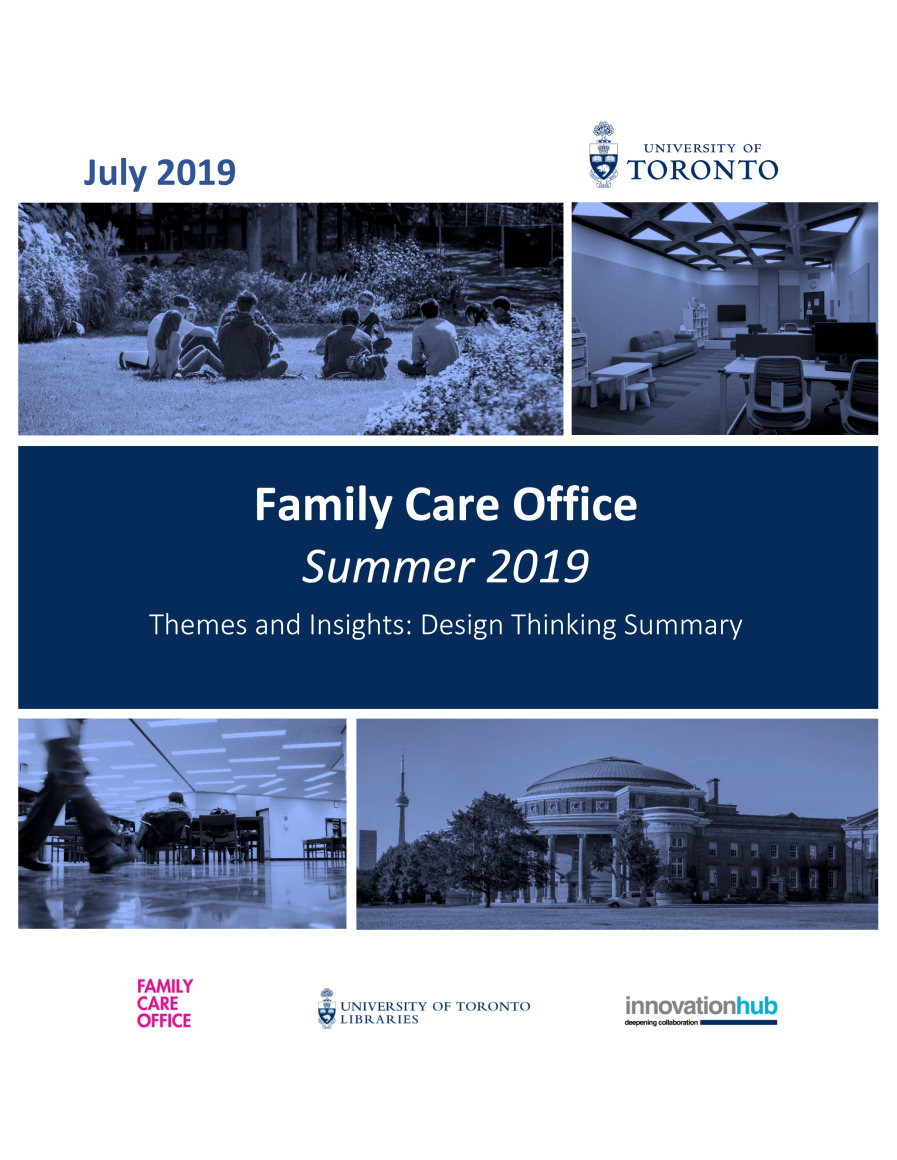
Family Care Office: How Can We Better Support Student Parents On Campus?
Student parents are a growing group of students at the University of Toronto (U of T) facing unique challenges that appear invisible to those who do not share their experiences. In 2018–19, the Innovation Hub partnered with the Family Care Office to investigate the experiences of student parents and identify the tensions and barriers they face at U of T. Building on this, Innovation Hub identified areas for improvements in policies, programs, services, and spaces that departments and divisions can undertake to be more inclusive of students who are also parents.
Summer 2019
What resources and support systems would create a more inclusive and family-friendly culture at U of T?
Departments and divisions at U of T can make many small and large-scale changes to alleviate the tensions and barriers that student parents face. While some solutions may require a big budget and structural changes, there are other solutions that require fewer resources and can immediately improve student parents’ lives. To identify such solutions, the Innovation Hub conducted design thinking ideation with students who are parents.
KEY FINDINGS
Four main themes emerged from the event data and from the findings in the first report. These themes provide a greater focus on the challenges that student parents face and potential solutions to them by addressing:
- Developing Connectedness
- Changes to Communicating Information and Accommodations
- Creating Spaces and Providing Resources
- Increasing Inclusivity and Visibility


Developing Connectedness: Student parents described how a lack of connectedness makes them feel isolated at the university, because the majority of other students do not have the same facet of family responsibilities or share their experiences. They discussed solutions wherein the university provides them with more resources to socialize and network with each other.

Changes to Communicating Information and Accommodations: Student parents expressed frustration with the current way that policies are communicated and the lack of accommodations for their needs. In particular, communication about financial issues often occurs only after students start financial planning. Also, student parents find it difficult to receive the accommodations they need, because their needs are often not viewed as accessibility issues. When they are given accommodations, they generally receive a single type of accommodation that does not necessarily fit their specific situation. They would like to have a range of different accommodations that better suit their particular needs and the needs of their families.

Creating Spaces and Providing Resources: Student parents described how they are inconvenienced by the lack of family-friendly spaces on campus and the inaccessibility of the spaces that do exist. In most campus buildings, there are neither spaces specifically designated for families nor general spaces that are family-friendly, making it difficult for student parents to bring their children to campus. Participants suggested adding small play areas to buildings and a playground in a central location. They also mentioned problems with the accessibility of the Robarts Family Study Room, specifically its current inaccessibility to their family members who assist with childcare. Finally, they discussed the time- consuming process of accessing the nursing rooms on campus and potential improvements.

Increasing Inclusivity and Visibility: An overarching theme that emerged was that student parents feel a lack of inclusivity and visibility at the university. They perceive that other students, faculty, and staff are often unaware of their presence on campus and their experiences. Many of the solutions they suggested are meant to increase inclusivity and visibility: these include using family-friendly spaces as visual demonstrations of the presence of families on campus and hosting university events for families.
